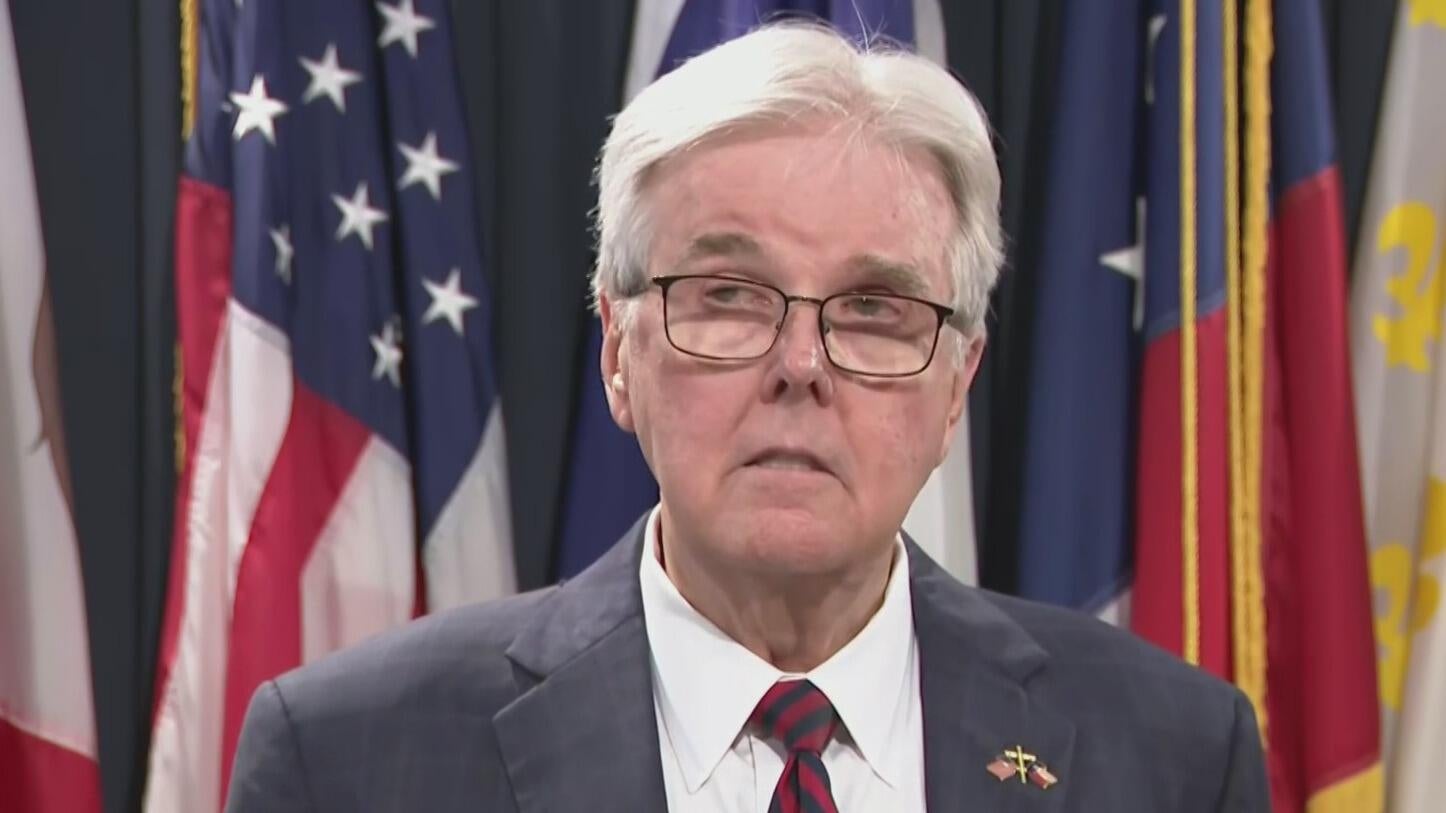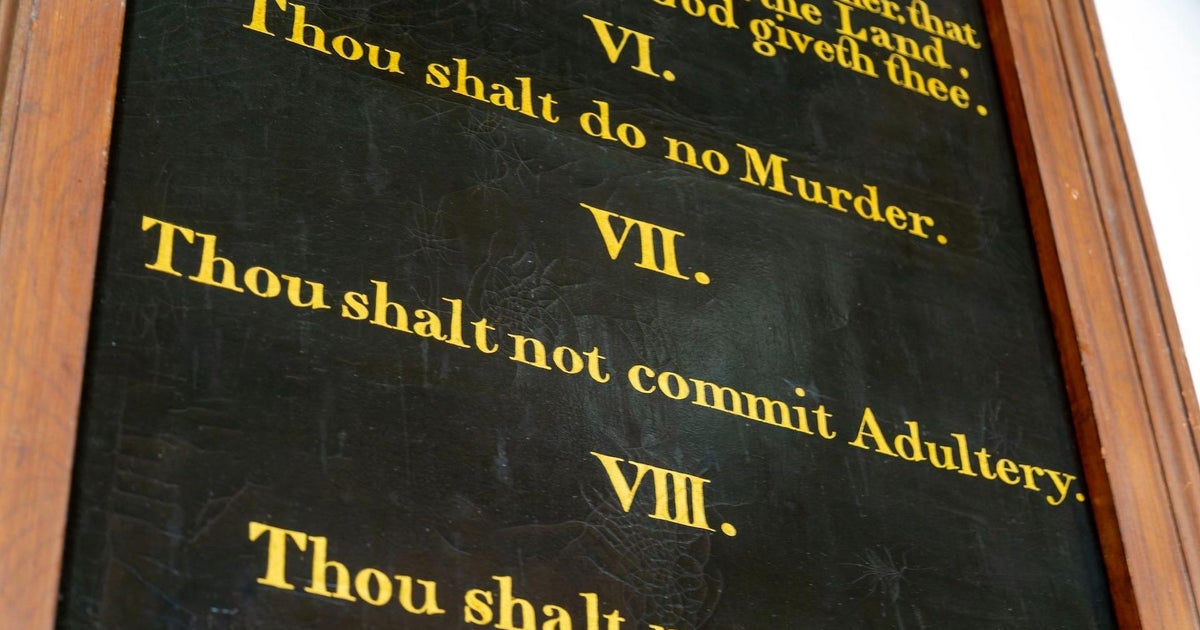Lt. Gov. Dan Patrick "puzzled" by Texas Gov. Greg Abbott's veto of bill banning THC, saying "the governor of the state of Texas wants to legalize recreational marijuana"
Texas Lt. Gov. Dan Patrick describes Gov. Greg Abbott's veto of 365bet¹Ù·½ÍøÕ¾ Bill 3, the legislation that would ban legal marijuana in Texas, as surprising.
Political observers said having the two top state leaders at odds with each other is raising questions about a possible split within the Republican-run state.
"The governor and I will work together in the future and will disagree from time to time, but this is a fight that didn't need to be," said Patrick
A staunch supporter of the bill, Patrick said he was surprised by the veto of a bill he expected would become law.
"It puzzles me why my friend Gov. Greg Abbott would, at the last minute, about 22 minutes after 11 p.m., decide to veto this bill," said Patrick. "One can only come to this conclusion, which surprises me: the governor of the state of Texas wants to legalize recreational marijuana in Texas."
SB 3 would have banned the sale of all THC products, including delta-8 and delta-9, also known as legal marijuana, in stores that sell them. It's an industry estimated to be in the billions in Texas.
In a proclamation following the veto, Abbott agreed the products aren't safe for everyone, but stated concerns over the legality of the legislation, the way it's currently written.
"If I were to allow 365bet¹Ù·½ÍøÕ¾ Bill 3 to become law, its enforcement would be enjoined for years, leaving existing abuses unaddressed. Texas cannot afford to wait," Abbott said. "Knowing that it faces a lengthy battle that will render it dead on arrival in court, would hinder rather than help us solve the public safety issues the bill seeks to contain."
A reasonable compromise?
"Abbott clearly believes that the bill, as written, goes farther than it is constitutionally warranted at this point," said Dr. Matthew Wilson, a political science professor at SMU. "I don't think this fundamentally ruptures the relationship between Patrick and Abbott, but I think that Patrick is a little miffed. It will be interesting to see if they are able to come up with a reasonable compromise that they can both live with. But I think this points to some of the tensions in a state where there is a one-party rule."
As for Patrick, he isn't holding back on criticism towards his friend and the governor.
"We will see what happens in the special session, but ?" Patrick asked. "Where's he been?"
Abbott said he would like to see more restrictions on the products and cited a similar bill out of Arkansas, which was challenged successfully by the federal courts, and that he didn't want that to happen in Texas.
Why some THC is legal in Texas
The federal and Texas governments legalized hemp in 2018 and 2019, respectively, with agricultural uses in mind. The laws differentiated hemp from illegal forms of cannabis by defining it as having 0.3% "delta-9 tetrahydrocannabinol" or less. The laws didn't explicitly cap other forms of THC, like delta-8 and delta-10, which aren't naturally found in large quantities, but have similar psychoactive effects to delta-9.
Cannabis companies jumped on the loophole, providing Texas retailers with products containing the unregulated THC compounds.
The bill was a top priority for Patrick during the legislative session in Austin. He claimed that the stores selling THC products were targeting adults and children, and were putting Texans in danger.
SB 3 passed the House 87-54, mostly along party lines. The 365bet¹Ù·½ÍøÕ¾ passed the final version 25-6.
Strong opposition to SB3
As the bill was being debated, hundreds of people turned up at the Capitol to advocate against it. Since the bill passed, the opposition has turned its eyes towards Abbott, asking that he veto it.
The governor had not publicly commented on the bill.
An internet petition promoted by the Texas Hemp Business Council received more than 150,000 signatures, and the group has delivered thousands of letters to Abbott's office pleading for a veto.
After the veto, the council said in a statement: "Governor Greg Abbott's veto of SB 3 reinforces Texas' reputation as a leader in business innovation and practical policymaking. By choosing balance over overreach, Governor Abbott protected a vibrant, federally legal hemp industry that employs 53,000 Texans and generates over $4.3 billion in annual sales."
Opponents argued that if the bill became law, it would force thousands of people out of their jobs and cause billions of dollars in economic losses for the state from what has become a booming industry. They also argue it would harm veterans and others who use THC instead of opioids to treat chronic pain, forcing them to buy from drug dealers to get the same relief.
Survey data from a pollster aligned with President Trump found that most Texans would like to see stricter regulations around THC, but a large majority of voters, and 44% of Republicans, oppose a ban.
What is the difference between THC and CBD?
Tetrahydrocannabinol (THC) and its sibling, cannabidiol (CBD), are produced by the same cannabis plant and have similar chemical structures but differ dramatically in their mechanisms of action and effects on brain functions, according to the .
THC and CBD both have therapeutic properties; however, impairments and increased incidence of mental health diseases are associated with acute and chronic THC use, according to the NIH.
NIH also said there are significant side effects associated with chronic use of high-dose CBD.




